The Chancellor of the Exchequer, Philip Hammond, announced his first annual Budget to Parliament today, Wednesday, 8th March 2017.
The Budget is the Government's annual financial statement and review of levels of taxation. It also includes the Government's future financial strategy and economic forecast.
Small businesses continue to face many new responsibilities and pressures, including revised business rates, workplace pension schemes, the national living wage and quarterly tax reporting.
In today’s announcements, small business owners were big targets and were left feeling like they are shouldering more than their fair share of the financial burden.
The key changes announced in this final Spring Budget that will affect small businesses were:
- Unincorporated businesses that have an annual turnover below the VAT registration threshold will have until April 2019 to prepare before Making Tax Digital becomes mandatory
- From 2018, Class 2 National Insurance will be abolished
- Tax-free dividend allowance will be reduced from £5,000 to £2,000 from April 2018
In this summary, we explain the focal points of Budget 2017 for small business owners and remind you of some changes that have already been announced and are due to be introduced soon.
BUSINESS
Limited Companies
The Government confirmed its intention to lower the Corporation Tax rate to 19% from April 2017 and 17% by 2020. However, it is reducing the tax-free Dividend Allowance for directors-shareholders from £5,000 to £2,000 with effect from April 2018.
The Dividend Allowance replaced the Dividend Tax Credit in April 2016, and offers a 0% tax rate on dividends within the Dividend Allowance. Dividends in excess of the Allowance are taxed at the following rates:
â– 7.5% within the basic rate band
â– 32.5% within the higher rate band
â– 38.1% within the additional rate band
The abolition of the Dividend Tax Credit marked the end of so-called ‘tax-free dividends’ for basic rate taxpayers.
This subsequent reduction in the Dividend Allowance will further increase the cost of extracting income from owner-managed companies even though they will be paying less Corporation Tax.
There will also be a number of consultations looking at certain benefits in kind provided to employees and ways to make the tax system easier to understand.
Making Tax Digital
In the March 2015 Budget, the Government announced its plans to modernise the tax system through technology and end the need for annual tax returns under the banner Making Tax Digital. Instead, taxpayers and businesses subject to certain criteria will be expected to update their affairs with HM Revenue & Customs quarterly, online, through bookkeeping software.
In today’s Budget, the Chancellor announced that Making Tax Digital would be deferred by one year until April 2019 for unincorporated businesses and landlords with turnover below the VAT registration threshold. This will provide them with more time to prepare for digital record keeping and quarterly updates.
For businesses, self-employed people and landlords, the Making Tax Digital timetable is now as follows:
- April 2018 if they have profits chargeable to Income Tax and pay Class 4 National Insurance contributions (NICs) and their turnovers are in excess of the VAT threshold
- April 2019 if they have profits chargeable to Income Tax and pay Class 4 NICs and their turnovers are below the VAT threshold
- April 2019 if they are registered for and pay VAT
- April 2020 if they pay Corporation Tax (CT)
Businesses, self-employed people and landlords with turnovers under £10,000 are exempt from these requirements. Those in employment who have secondary income of more than £10,000 per year through self-employment or property will also be required to use the digital service.
The Government will also consult on the design aspects of the tax administration system, including interest and penalties.
National Living Wage
The National Living Wage from April 2017 will rise from £7.20 to £7.50 per hour for those aged 25 or over. The Government’s aim is to increase this to over £9 an hour by 2020.
Cash basis
Presently, you can use the cash basis if you:
- run a small self-employed business, e.g. sole trader or partnership
- have an income of £83,000 or less a year
If you have more than one business and opt to use the cash basis, you must apply it to all your businesses provided the combined turnover from your businesses is less than £83,000.
Using the cash basis means you only need to declare money when it comes in and out of your business. At the end of the tax year, you won’t have to pay tax on money you didn’t receive in the period. And previously, businesses could continue to use the scheme provided their total business income was below £166,000 per year.
In today’s Budget, it was announced that with affect from the 2017/18 tax year:
- the cash basis entry threshold will rise from £83,000 to £150,000
- the exit threshold will increase from £166,000 to £300,000 and;
- the cash basis will be available to unincorporated landlords.
The Government also plans to simplify the rules on capital and revenue expenditure within the cash basis, to make it easier for businesses to work out whether their expenditure is deductible for tax.
These changes to the cash basis are all in support of Making Tax Digital.
Business rates – England only
At Budget 2016, the Government announced reductions in business rates, including permanently doubling Small Business Rate Relief and extending the thresholds of the relief to ensure that 600,000 businesses wouldn’t pay business rates.
A long-awaited business rates revaluation will take effect in England from April 2017. In addition to the £3.6 billion transitional relief which was announced in November 2016, the Government will provide £435 million of further support for businesses facing significant increases in bills because of the revaluation. This includes:
- support for small businesses losing Small Business Rate Relief to limit increases in their bills to the greater of £50 per month or the real terms transitional relief cap for small businesses each year
- providing English local authorities with funding to support £300 million of discretionary relief, to allow them to provide support to individual hard cases in their local area
- £1,000 business rate discount for pubs with a rateable value of up to £100,000, subject to state aid limits for businesses with multiple properties, for one year from 1 April 2017
At Budget 2016, the Government announced an aim to deliver more frequent revaluations of properties – at least every 3 years. The Government will set out its preferred approach for delivering this aim at Autumn Budget 2017 and will consult ahead of the next revaluation in 2022.
VAT
Registration and Deregistration Thresholds
Businesses are obliged to register for VAT once their taxable turnover for any 12-month period exceeds the VAT registration threshold. They may opt to deregister if their turnover falls below the de registration threshold.
| From April 2017 | From April 2016 | |
| VAT registration threshold | £85,000 | £83,000 |
| VAT deregistration threshold | £83,000 | £81,000 |
PERSONAL
Personal Allowance and Tax Rates
As previously announced, the personal allowance for 2017/18 will be £11,500. The basic rate band of 20% increases to £33,500. This means the 40% band starts on income above £45,000. The Government intends to increase these to £12,500 and £37,500 respectively by the end of their term. This will mean an individual can earn up to £50,000 before paying tax at 40%.
Rent-a-room Relief
The Government will consult on proposals to redesign rent-a-room relief, to ensure it is better targeted to support longer-term lettings. This will align the relief more closely with its intended purpose to increase supply of affordable long-term lodgings. It may mean that rent-a-room will no longer be available to guest houses and B&Bs in future.
Join us in three easy steps

Get in touch
Arrange a free consultation in person or via video with your local accountant. It’s an informal chat to get to know you and find out more about the help you are looking for.

Chat to an expert
We clearly explain the support available to you and are happy to act as business advisors in order to help you grow your business.

Get a fixed quote
Our fees are fixed and tailored specifically to each individual's needs, so that you only pay for the level of support and services that you require.
Choose the right accounting firm for you
Running your own business can be challenging so why not let TaxAssist Accountants manage your tax, accounting, bookkeeping and payroll needs? If you are not receiving the service you deserve from your accountant, then perhaps it’s time to make the switch?

Local business focus
We specialise in supporting independent businesses and work with 80,684 clients. Each TaxAssist Accountant runs their own business, and are passionate about supporting you.

Come and meet us
We enjoy talking to business owners and self-employed professionals who are looking to get the most out of their accountant. You can visit us at any of our 409 locations, meet with us online through video call software, or talk to us by telephone.

Switching is simple
Changing accountants is easier than you might think. There are no tax implications and you can switch at any time in the year and our team will guide you through the process for a smooth transition.
See how TaxAssist Accountants can help you with a free, no obligation consultation
.jpg)